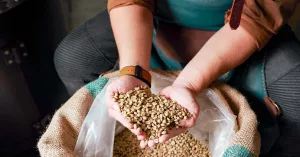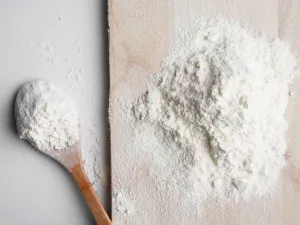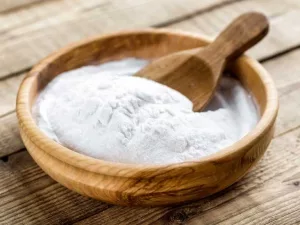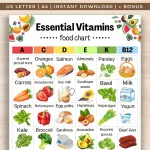Regularly consuming a range of nutrient-dense foods rich in vitamins and minerals — like citrus fruits, spinach, red peppers, and ginger — can help support your immune defenses.
While no single food can prevent or cure illnesses, giving your body certain nutrients may help keep your immune system functioning well.
If you want to lower your risk of catching colds, the flu, and other infections, a simple first step is stocking your kitchen thoughtfully. Plan meals that include these 15 potent immune-supporting foods.

Food Fix: Immune System Boost
1. Citrus fruits
People often reach for vitamin C when they get a cold because it may help strengthen immune function.
Vitamin C is believed to boost production of white blood cells, which are essential for fighting infections.
Most citrus fruits are excellent sources of vitamin C. With many varieties available, it’s easy to add this nutrient to meals.
Common citrus choices include:
- grapefruit
- oranges
- clementines
- tangerines
- lemons
- limes
Because your body neither makes nor stores vitamin C, you need a daily intake to stay healthy. The recommended amount for most adults is:
- 75 mg for women
- 90 mg for men
If you use supplements, don’t exceed 2,000 milligrams (mg) per day.
2. Red bell peppers
Red bell peppers (100 g) have nearly three times the vitamin C of a 100g Florida orange. They’re also an abundant source of beta-carotene.
Besides supporting immune health, vitamin C can help maintain healthy skin. Beta-carotene, which your body converts into vitamin A, supports eye and skin health.
3. Broccoli
Broccoli is loaded with vitamins and minerals. Full of vitamins A, C, and E, fiber, and various antioxidants, broccoli ranks among the healthiest vegetables you can eat.
To preserve its nutrients, cook it as little as possible — or better yet, eat it raw. Research indicates that steaming or microwaving retains the most nutrients.
4. Garlic
Garlic flavors dishes and has been used medicinally for centuries.
Ancient cultures valued it for fighting infections. Garlic may also slow artery hardening and has been studied for treating high blood pressure.
Garlic’s immune-enhancing effects are thought to stem from sulfur-containing compounds, such as allicin.
5. Ginger
Ginger is another remedy people often use when they feel unwell. It may help reduce inflammation, easing sore throats and inflammatory conditions, and can relieve nausea.
Although used in desserts, ginger contains pungent compounds like gingerol, similar in action to capsaicin.
Ginger may also reduce chronic pain and could possess additional health benefits.
6. Spinach
Spinach is on the list not only because it’s rich in vitamin C but also because it’s packed with antioxidants and beta-carotene, both of which may enhance immune function.
Like broccoli, spinach is most nutritious when minimally cooked. Light cooking, however, can make vitamin A more absorbable and release nutrients bound by oxalic acid.
»Learn More:Check Out These Healthy and Delicious Spinach Recipes.7. Yogurt
Choose yogurts labeled “live and active cultures,” such as Greek yogurt. These cultures may stimulate the immune system and help defend against illness.
Opt for plain varieties rather than heavily sweetened flavored ones. You can sweeten plain yogurt with fresh fruit and a touch of honey.
Yogurt can also be a good source of vitamin D if fortified. Vitamin D helps regulate immune responses and may strengthen the body’s defenses.
8. Almonds
Although vitamin C often gets the spotlight, vitamin E is also crucial for a healthy immune system.
Vitamin E is fat-soluble, so it needs dietary fat for proper absorption. Nuts like almonds provide both this vitamin and healthy fats.
Adults require about a modest daily amount of vitamin E. A half-cup serving of almonds (roughly 46 whole, shelled almonds) supplies a substantial portion of the daily need.
9. Sunflower seeds
Sunflower seeds are nutrient-dense, offering phosphorus, magnesium, and vitamins B6 and E.
Vitamin E plays a role in regulating immune function. Other good sources include avocados and dark leafy greens.
Sunflower seeds are also rich in selenium. Just 1 ounce contains a significant portion of the selenium an average adult needs. Various studies, primarily in animals, have explored selenium’s potential against viral infections like swine flu (H1N1).
10. Turmeric
Turmeric, a staple in many curries, is a bright yellow spice long used as an anti-inflammatory for conditions such as osteoarthritis and rheumatoid arthritis.
Research indicates that curcumin, turmeric’s active pigment, may reduce exercise-induced muscle damage. Curcumin shows promise as an immune-supporting compound (based on animal studies), though more human research is needed.
11. Green tea
Both green and black teas contain flavonoids, a class of antioxidants. Green tea stands out for its high levels of epigallocatechin gallate (EGCG), a potent antioxidant.
Research suggests EGCG may have antiviral properties that support immunity. Black tea’s fermentation process reduces EGCG, whereas green tea is steamed and retains more of this compound.
12. Papaya
A small papaya provides a large portion of the daily recommended vitamin C. Papayas also contain papain, a digestive enzyme with anti-inflammatory effects.
Papayas also supply potassium, magnesium, and folate, which support overall health.
13. Kiwi
Like papaya, kiwi is rich in essential nutrients such as folate, potassium, vitamin K, and vitamin C.
Vitamin C supports white blood cell function to fight infections, while kiwi’s other nutrients help maintain general bodily functions.
14. Poultry
When you reach for chicken soup while sick, it’s not just psychological — the soup may help lower inflammation and ease cold symptoms.
Poultry such as chicken and turkey is a good source of vitamin B6. About 3 ounces of light chicken or turkey provides a meaningful portion of your daily B6 needs.
Vitamin B6 is involved in many biochemical reactions and is essential for forming new, healthy red blood cells.
Broth made by simmering chicken bones yields gelatin, chondroitin, and other nutrients that support gut health and immunity.
15. Shellfish
Shellfish might not be the first food people think of for immunity, but certain shellfish are rich in zinc, a mineral that supports immune function.
Shellfish high in zinc include:
- oysters
- crab
- lobster
- mussels
Keep in mind the recommended zinc intake limits:
- 11 mg for adult men
- 8 mg for most adult women
Excessive zinc can impair immune function, so don’t exceed the upper limits.
Frequently asked questions
How can you boost your immune system quickly?
Rapidly boosting the immune system isn’t realistic, but the earlier you adopt a few healthy lifestyle habits, the sooner you may notice improvements in overall wellness and immune function.
Focus on balanced meals featuring fresh produce and whole grains, aim for at least 150 minutes of moderate activity per week, get adequate sleep, manage stress through relaxation or therapy, avoid tobacco, and limit alcohol.
Does vitamin C increase white blood cell count?
Early research indicates vitamin C may play a role in the development and performance of white blood cells. It appears vitamin C might enhance the proliferation of B- and T-cells, important white blood cells in the immune response.
The exact amount needed to influence white blood cell levels likely depends on individual health and circumstances. More human research is required to clarify the relationship.
How do you increase white blood cell count?
To raise white blood cell numbers, consider avoiding alcohol and tobacco and eating a balanced diet. For example, a 2021 study found the Mediterranean diet influenced white blood cell counts in adults at risk for cardiovascular disease.
Depending on the underlying cause of low white blood cells, medical treatments such as myeloid growth factors may be necessary.
What foods may help fight viruses?
Foods with potential antiviral effects include fermented vegetables like kimchi, fermented dairy like yogurt and kefir, herbs (oregano, fennel, peppermint, aloe vera), garlic, ginger, turmeric, black cumin, cinnamon, licorice root, certain mushrooms, and citrus fruits.
What foods may help fight infections?
Some foods may support the immune system directly, while others have antimicrobial properties that can help combat bacteria, viruses, and other pathogens. Examples include herbs and spices (oregano, cinnamon, clove, rosemary), cruciferous vegetables (kale, rutabaga), citrus fruits, parsley, and an array of other plant-based foods.
What vegetables are good for the immune system?
Eating a colorful variety of vegetables can support immune health. Red peppers, spinach, and broccoli are excellent picks, along with immune-friendly ingredients like ginger, turmeric, and garlic.
Can bananas boost your immune system?
Regularly eating a range of fresh fruits supports immune function. Bananas contain lectin, and one animal study suggested banana lectin might enhance immunity. More human studies are needed to confirm any meaningful effect.
Takeaway
Fresh, whole foods supply the nutrients your immune system needs to operate effectively. For best results, aim for a diet rich in diverse fruits, vegetables, whole grains, herbs, and spices.
Foods like citrus fruits, spinach, almonds, papaya, and green tea are helpful additions to support immunity.
Remember that diet alone can’t ensure health. Regular physical activity, maintaining a healthy weight, and avoiding harmful habits like smoking and excessive drinking are also important.
Although a balanced diet is vital for bolstering immunity, foods should not replace medical treatment unless advised by a healthcare professional.

























Leave a Reply
You must be logged in to post a comment.